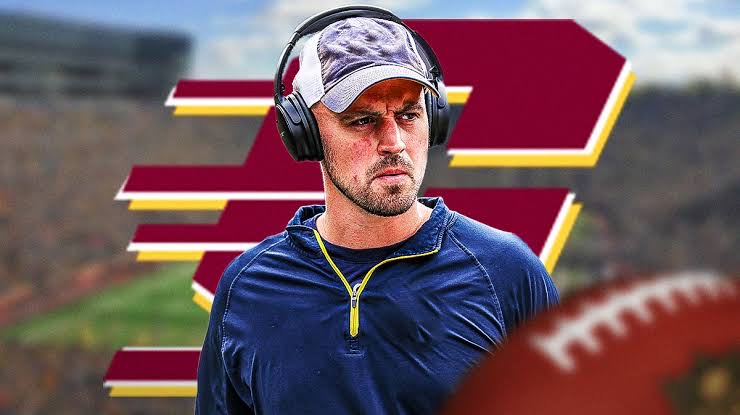In the world of college football, where tradition and integrity are often touted as core values, the recent revelations surrounding former Michigan staffer Connor Stalions have sent shockwaves through the sport. His appearance in the new Netflix documentary, *Sign Stealer*, has reignited debates over the ethical boundaries of game preparation, with Stalions himself caught at the center of a controversy that threatens to taint Michigan’s storied program.
The Documentary Bombshell
*Sign Stealer* pulls no punches, shedding light on the clandestine world of sign-stealing—a practice as old as the game itself but rarely discussed openly. Connor Stalions, who worked with Michigan’s football program, emerges as a pivotal figure in this secretive operation. His candid admissions in the documentary have raised eyebrows, with many questioning whether Michigan’s recent success can be attributed, in part, to his questionable methods.
Stalions doesn’t shy away from the controversy. In the documentary, he describes his role in deciphering opponents’ signals, a task that he claims was integral to Michigan’s game strategy. “It wasn’t cheating,” Stalions insists. “It was about being smarter, being one step ahead. If you knew what the other team was going to do, why wouldn’t you use that information?”
The Thin Line Between Strategy and Cheating
Stalions’ statements have sparked fierce debate. Supporters argue that sign-stealing, while perhaps morally ambiguous, is not explicitly against the rules in college football. It’s part of the cat-and-mouse game between coaches—a game where every edge counts. “Football is war,” says Stalions in *Sign Stealer*. “And in war, you use every tool at your disposal.”
Critics, however, see it differently. They argue that Stalions’ actions cross a line, undermining the spirit of fair competition. Some even suggest that Michigan’s recent dominance in the Big Ten may be tainted by these revelations. “If you’re winning because you know the other team’s plays before they happen, is that really winning?” one commentator asks in the documentary.
Michigan’s Silence Speaks Volumes
What’s perhaps most striking about the *Sign Stealer* documentary is the conspicuous silence from Michigan’s higher-ups. While Stalions is unapologetic about his role, the program itself has not officially commented on the allegations. This silence has only fueled speculation that the university was aware of, and perhaps even complicit in, his actions.
This controversy couldn’t come at a worse time for Michigan, a program that prides itself on its rich history and tradition. As the documentary continues to garner attention, the question remains: will the Wolverines’ recent achievements be viewed through a different lens?
The Fallout and Future of Sign-Stealing in Football
The release of *Sign Stealer* has already had repercussions beyond Michigan. The NCAA is reportedly reviewing its policies on sign-stealing, and other programs are conducting internal reviews to ensure compliance with the rules. Stalions’ story may be just the beginning of a broader reckoning in college football, where the line between fair play and foul is becoming increasingly blurred.
For Connor Stalions, his role in the documentary seems to be an attempt to rewrite the narrative—painting himself not as a cheater, but as a misunderstood strategist. “People can say what they want,” he says defiantly. “But the scoreboard doesn’t lie.”
As the college football world digests the revelations from *Sign Stealer*, one thing is clear: Connor Stalions has forced everyone to confront the uncomfortable reality that, in the pursuit of victory, some are willing to bend the rules—if not break them outright. Whether history will view him as a savvy strategist or a sign-stealing scoundrel remains to be seen. But one thing is certain: the legacy of Michigan football has been irrevocably altered by his actions.
